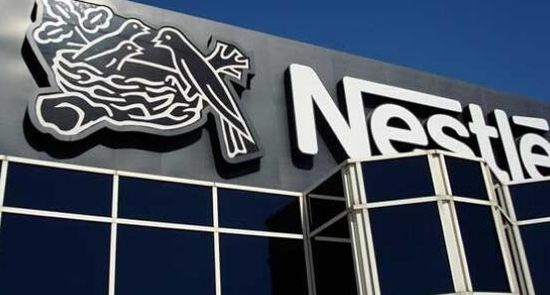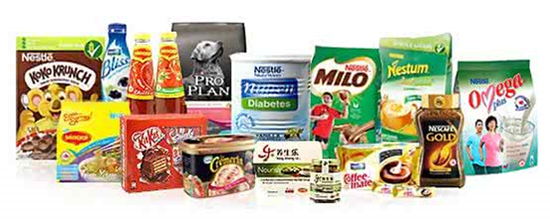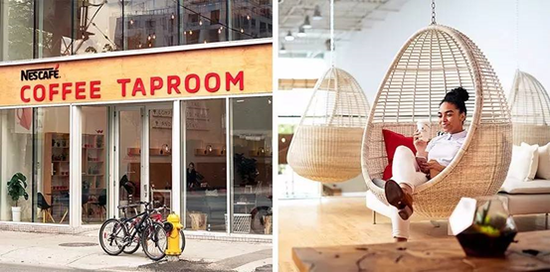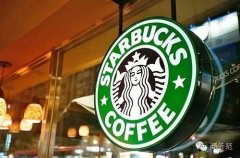Barbarian shares in Nestl é: it is urgent to get rid of the label of cheap coffee

Professional barista communication, please pay attention to coffee workshop (Weixin Official Accounts cafe_style )
On Sunday, prominent activist investor and hedge fund mogul Daniel Loeb's Third Point hedge fund took a $3.5 billion stake in Nestle, taking a 1.25 percent stake and saying it was hard to find a company with "so many ways to improve at a high valuation" like Nestle. It was then suggested that Nestle could divest non-core businesses, buy back shares and sell its stake in L'Oréal.
As for the proposal of "Barbarian" Loeb to liquidate L'Oreal, Nestle seems indifferent. Nestlé and L 'Oreal were once the two giants with the closest relationship in the global consumer goods industry. In 1974, L' Oreal sold part of its shares to Nestlé. In 2014, L 'Oreal bought back 8% of its shares from Nestlé. At present, Nestlé still holds 23% of L' Oreal's shares, worth about US $27 billion. Loeb pointed out that Nestle's stake in L'Oréal was not strategic and would not have to pay heavy taxes if sold.
However, Nestle had previously set up a new "health sciences" division, hoping to make a difference in the pharmaceutical and personal care markets. This new division overlapped with L'Oreal and had certain synergies, but it seemed that there had been opponents within the company who were not optimistic about Nestle's investment in this area. Therefore, whether Nestle will reduce its stake in L 'Oreal in the future is still full of variables.
The reporter of "Business School" asked Nestle China, and the relevant responsible person said he would not comment on the matter. "Most businesses are set aside once they hit a ceiling when their cash cow role is less meaningful than holding cash." Fast elimination expert Li Xingmin pointed out.
In February, Nestle reported weaker-than-expected earnings for 2016 and a sharp drop in an important sales metric, highlighting the challenges consumer goods companies face amid sluggish growth and low inflation in key markets.
Nestlé's organic sales grew just 3.2 percent in 2016, down from 4.2 percent in 2015, the fourth year it missed its target of 5 to 6 percent growth. Nestlé's sales in 2016 were 89.47 billion Swiss francs ($89.1 billion), slightly higher than in 2015, but still fell short of analysts 'expectations. Net profit was 8.5 billion Swiss francs, down from 9.1 billion Swiss francs in 2015 and well below analysts 'average estimate of 9.5 billion Swiss francs.

Amid slowing growth in the traditional food industry, fast-moving consumer giant Nestlé is eager to launch a "low sugar" campaign and open up new, more growth areas.
On June 15, Nestlé officially released a statement saying that it expects to sell its confectionery business in the United States by the end of this year, including 17 local chocolate and confectionery brands (including Butterfinger, SweeTarts, LaffyTaffy, Nerds, etc.) and an international chocolate brand Crunch. In 2016, Nestlé's US confectionery business generated sales of approximately CHF 900 million.
"The Nestlé confectionery brand is a world leader and remains firmly committed to international confectionery brand development around the world, particularly its global brand KitKat. Nestlé's global confectionery sales reached CHF 8.8 billion in 2016. With sales of CHF 26.8 billion, the US market became Nestlé's largest market. Confectionery accounts for about three percent of U.S. sales. Nestle products are consumed in 97% of households in the u.s. under brands such as Purina, nestle live, coffee-mate, gerber, and Stouffer." Nestle China PR said in response to a reporter's inquiry from the Business School.
On June 20, Nestle announced a stake in Freshly, a healthy food start-up. Freshly users can choose meals on its platform and book multi-day meals, according to public sources. The more you order, the cheaper the meal. Freshly currently orders 250,000 meals per month in 28 states. In addition, Freshly advocates healthy eating, focusing on healthy ingredients such as protein and vegetables without any artificial additives.
Some commentators believe that Nestle's move is a competition with e-commerce giant Amazon. On June 16, Amazon announced that it would buy Whole Foods for $13.7 billion, which could change the landscape of the food industry.
On June 27, Nestle announced plans to buy back 20 billion Swiss francs ($21 billion) of shares and said it was looking at acquisition opportunities. Nestle said in a statement that it would launch its largest buyback in a decade while also investing in coffee, pet care, baby food and bottled water and pursuing opportunities in consumer health care.
Nestlé has long dominated the global coffee retail giant with instant coffee and capsule coffee machines, accounting for a total of 23% of global coffee retail shares in 2016, worth $77 billion. But "big doesn't mean fast, and it doesn't mean you can attract future customers," says Patrice Bula, executive vice president of Nestle Group.

Interestingly, in early June this year, Nestle opened a coffee shop pop-up shop at 499 Queen Street West in Toronto, Canada, to "kill" Starbucks. This special coffee shop is open from 9 a.m. to 7 p.m. until June 28. Customers who want to stop here have to bring their own Nescafe instant coffee, which is equivalent to your "admission ticket". You have to scan this bag of coffee against the machine at the door. After successfully entering the store, you can get hot water. The cup is also prepared for you. Like Starbucks, your name is written on it, but the spelling is not necessarily correct. Lisa is spelled Leesaw, Rachel is spelled Raychill, which is a harmless joke made by the cafe and you. They set up a separate website dedicated to sweet cream instant coffee, selling new 18-bar coffee for less than $8, as well as coffee cups with misspellings mentioned in advertisements.
Nestle is trying to shed the label of "cheap coffee", and these attempts may gradually help Nestle become a more interesting brand in the minds of young people, rather than just equating it with instant coffee. But to really regain its voice in this market, perhaps it should spend more time on product development and innovation.
Important Notice :
前街咖啡 FrontStreet Coffee has moved to new addredd:
FrontStreet Coffee Address: 315,Donghua East Road,GuangZhou
Tel:020 38364473
- Prev

Jack Ma's father's latest operation-- unmanned coffee shop "Amoy Coffee", it's easier to chop his hands.
The exchange of professional baristas follow the coffee workshop (Wechat official account cafe_style) at the end of last year, e-commerce giant Amazon unveiled a four-year-old super-new offline store Amazon Go, a physical store that does not have to wait in line to check out: swipe your phone to enter the store, pick up products, pick up goods, and then leave! Many people sigh: in terms of real scientific and technological innovation, sure enough, it is still foreign.
- Next

Indonesian Muslim groups call for a boycott of Starbucks: because of its support for homosexuality
Professional baristas please follow the coffee workshop (Wechat official account cafe_style) if Starbucks is just doing business, of course, but don't bring ideology here. Anwar Abbas, a member of the Central Council of Muhammad, Indonesia's second largest Muslim organization, said in an interview with Reuters on July 1. In 2013, Starbucks Chairman Schultz expressed support for the same sex.
Related
- Can I make coffee a second time in an Italian hand-brewed mocha pot? Why can't coffee be brewed several times like tea leaves?
- Hand-brewed coffee flows with a knife and a tornado. How to brew it? What is the proportion of grinding water and water temperature divided into?
- What is the difference between Indonesian Sumatra Mantinin coffee and gold Mantinin? How to distinguish between real and fake golden Mantelin coffee?
- What does bypass mean in coffee? Why can hand-brewed coffee and water make it better?
- Unexpected! Ruixing Telunsu lattes use a smoothie machine to foam milk?!
- % Arabia's first store in Henan opens into the village?! Netizen: Thought it was P's
- Does an authentic standard mocha coffee recipe use chocolate sauce or powder? Mocha Latte/Dirty Coffee/Salty Mocha Coffee Recipe Share!
- What is the difference between Vietnam egg coffee and Norway egg coffee? Hand-brewed single product coffee filter paper filter cloth filter flat solution!
- What is the difference between sun-cured and honey-treated coffee? What are the differences in the flavor characteristics of sun-honey coffee?
- How to make Italian latte! How much milk does a standard latte use/what should the ratio of coffee to milk be?

